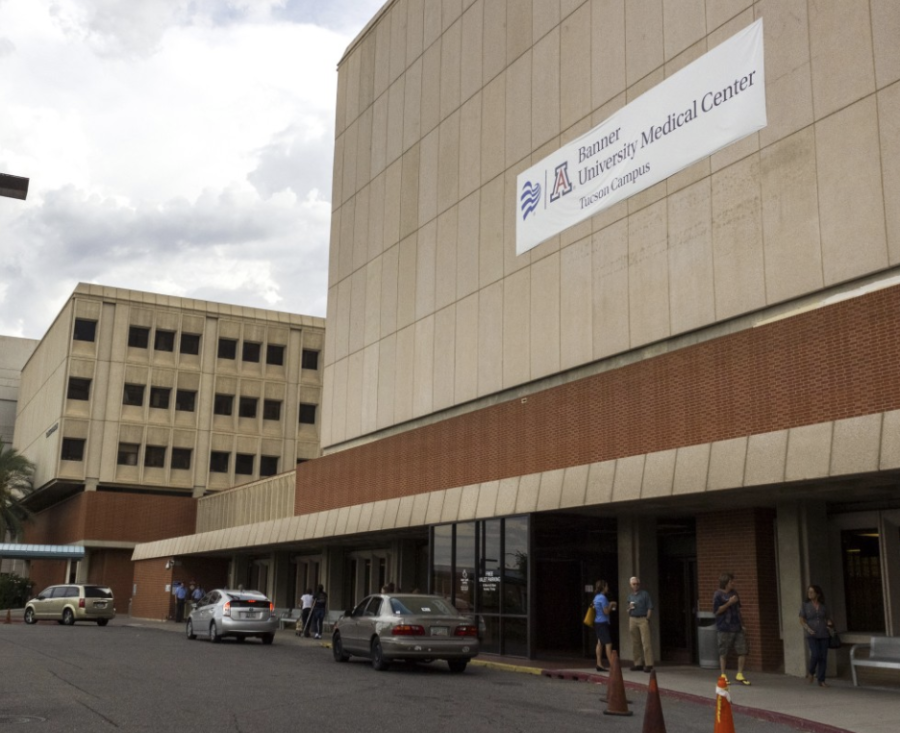Heath Occupations Students of America is an international organization that brings innovation and competition to its members. The organization inspires tens of thousands of individuals to compete each year at the International Leadership Conference. HOSA is for those who have an interest in a healthcare profession or simply want to explore areas of medicine.
Daniel Wieland is the president of UA HOSA, and he has been the president for the last three years. He has three majors which include biochemistry, molecular and cellular biology and biomedical engineering. HOSA is widely recognized, and Wieland plays a role in advertising the experience one gains from becoming a HOSA member. The Daily Wildcat sat down with Wieland to get to know him and the club better.
Daily Wildcat: What is HOSA?
Daniel Wieland: HOSA stands for Health Occupations Students of America. It is an international student organization that can be found at the collegiate, high school, and middle school levels. At the University of Arizona charter, we are a registered pre-health club to promote opportunities to empower our members in their healthcare endeavors and journey. HOSA also hosts competitions at the online, state, and international levels along with leadership conferences to allow for networking and greater exposure to medicine.
DW: How can people sign up to be UA HOSA members?
Wieland: People can sign up by contacting us at uahosaclub@gmail.com and requesting to be added to the list-serv. Attend a meeting and introduce yourself to us, and we’d be happy to answer any questions you have (or you can email them too). Check out our website for more information. Also, all undergraduates can sign up to be in UArizona HOSA if they are interested! Sometimes, we have non-STEM majors attend the meetings since they are interested in healthcare and wish to explore it further. We’re excited to have them.
DW: Do you have any recommendations for future HOSA members?
Wieland: Be proactive and remember that the more time you’re willing to put into something, the more it will reward you in the end. For example, when you attend our HOSA meetings when we have guest speakers, don’t be afraid to ask questions and engage with them! It’s important to realize that people are more accessible than you think if you view it as having a discussion rather than some sort of formal interview. This is true with the officers as well. These experiences will aid you in the actual interview process of med schools and also allow you to think on your feet more when engaging with clinicians.
DW: What skills can be improved on through HOSA?
Wieland: HOSA offers many opportunities for leadership positions, volunteerism, philanthropy, and clinical exposure. These are all core requirements for most medical schools and the innate skill that develops in participating in these activities such as teamwork, organization, and time-management are all very important for one’s self-development.
DW: What are some examples of activities that students have done in the past (medically related)?
Wieland: We have hosted meetings where members get to practice taking vitals on one another or listen to lectures from accomplished clinicians. One of our last meetings for the semester last year took place at the Arizona Simulation Technology and Education Center (ASTEC) lab on campus, which is a medical simulator used to train clinicians for a variety of healthcare scenarios. We attended walks such as the ALS and Tucson Heart Walk. We worked alongside the pre-health advisors and encouraged attendance at the UArizona Health Professions Week. For the HOSA competitions, some of our students get hands-on and work on designing medical devices while others try developing more knowledge-based skills such as pathology. With [COVID-19], our clinical activities are no longer in-person. For example, this semester we have encouraged students to volunteer in virtual therapy.
Follow Briana Aguilar on Twitter









